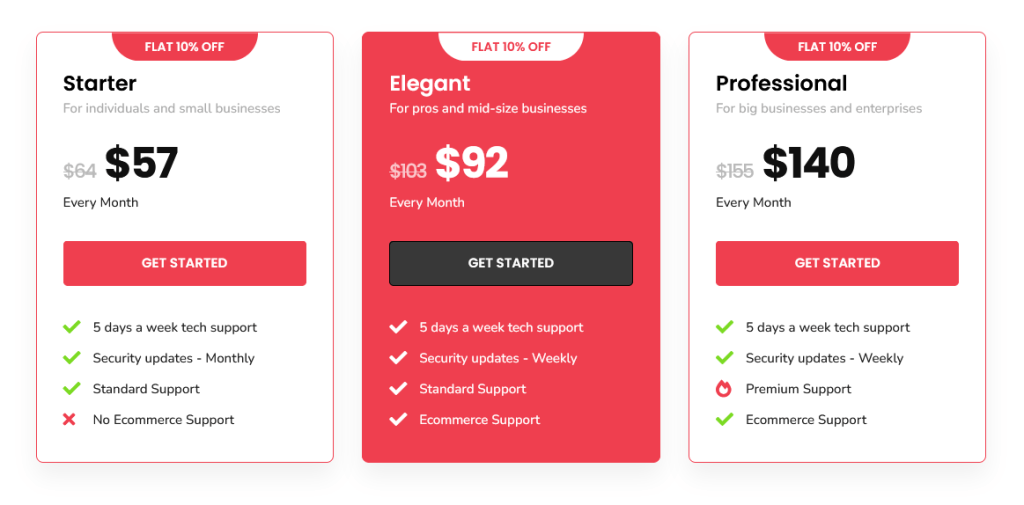The digital age demands a strong online presence for businesses of all sizes. A website is no longer a luxury but a necessity. With numerous website-building platforms available, selecting the right one can be overwhelming. This article will delve into three of the most popular options: WordPress, Wix, and Squarespace, to help you make an informed decision.
Table of Contents
Understanding Your Website Needs
Before diving into platform comparisons, defining your website’s purpose and target audience is crucial. Consider the following:
- Website complexity: Do you need a simple website or a complex e-commerce platform?
- Design preferences: Do you have specific design preferences or a brand identity to adhere to?
- Technical expertise: Are you comfortable with coding or prefer a drag-and-drop interface?
- Budget: What is your budget for website design and development?
- Long-term goals: How do you envision your website growing and evolving?
Answering these questions will help you identify the platform that best aligns with your requirements.

WordPress: The Versatile Contender
WordPress is undoubtedly the most popular website-building platform, powering millions of websites worldwide. Its open-source nature offers unparalleled flexibility and customization options.
Pros:
- Versatility: Suitable for a wide range of websites, from simple blogs to complex e-commerce stores.
- Customization: Extensive customization options through themes and plugins.
- SEO-friendly: Offers robust SEO tools and plugins to improve search engine visibility.
- Scalability: Can handle high traffic volumes and accommodate website growth.
- Large community: Extensive support and resources available.
Cons:
- Technical complexity: Requires some technical knowledge for setup and maintenance.
- Hosting and security: Requires separate hosting and security measures.
Ideal for: Businesses and individuals seeking maximum control over their website’s design and functionality.
Wix: The User-Friendly Option
Wix is known for its user-friendly drag-and-drop interface, making it an attractive option for beginners. It offers a wide range of templates and design options to create visually appealing websites quickly.
Pros:
- Ease of use: User-friendly interface with minimal technical knowledge required.
- Design flexibility: Offers a variety of templates and customization options.
- Built-in features: Includes e-commerce, blogging, and marketing tools.
- Free plan: Provides a free option to test the platform before committing.
Cons:
- Limited customization: Less flexibility compared to WordPress for advanced users.
- Potential for design limitations: Template-based designs may not be unique.
- Cost: Premium plans can be expensive for complex websites.
Ideal for: Small businesses and individuals looking for a quick and easy way to create a basic website.
Squarespace: The Stylish Choice
Squarespace is renowned for its clean and modern designs, making it a popular choice for businesses seeking a visually appealing website. It offers a balance between ease of use and customization.
Pros:
- Beautiful templates: Offers a curated selection of stylish and professional templates.
- E-commerce functionality: Strong e-commerce features for online stores.
- Blogging platform: Excellent platform for content creation and SEO.
- User-friendly interface: Intuitive drag-and-drop editor for easy website building.
Cons:
- Limited customization: Less flexibility compared to WordPress for advanced users.
- Cost: Pricing plans can be higher compared to other platforms.
Ideal for: Businesses and individuals who prioritize design and aesthetics and are willing to invest in a premium platform.
Choosing the Right Platform: Key Considerations
The best website platform for you depends on your specific needs and goals. Consider the following factors when making your decision:
- Design flexibility: How much control do you need over your website’s design and layout?
- E-commerce features: Do you plan to sell products or services online?
- Technical expertise: How comfortable are you with website management and maintenance?
- Budget: What is your budget for website development and ongoing costs?
- Scalability: How do you envision your website growing in the future?
By carefully evaluating these factors, you can select the platform that best aligns with your vision and empowers you to build a successful online presence.
Remember, there is no one-size-fits-all solution. It’s essential to explore the features and limitations of each platform before making a final decision.
Beyond Design: Maintaining Your Website’s Success
Optimize your website effortlessly with our maintenance-focused care plans. Tailored for existing websites, our plans cover routine updates, security enhancements, and performance tweaks. Ensure your site’s longevity and reliability without the hassle – because your established online presence deserves dedicated care. Choose peace of mind with our website maintenance solutions.





